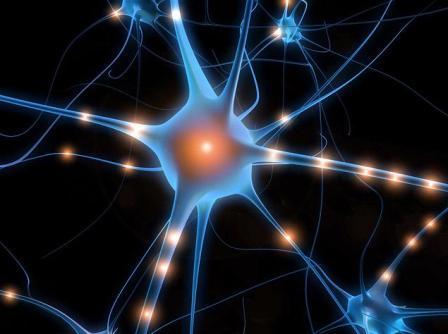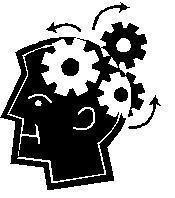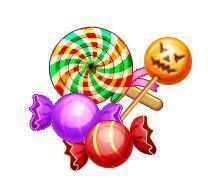Pat Bertram's Blog, page 207
February 11, 2014
Look What I Caught!
Three days ago, I turned off the computer and went fishing for life. It was a lovely day, sunny and warm with just a hint of coolness in the air. I accompanied a group of hikers on a trek along the fabled Pacific Crest Trail. Since the PCT (as it is affectionately called) stretches from Mexico to Canada, it’s impossible to traverse the whole of the trail in just a few hours, but we hiked a three-mile portion of it. (Three miles out and three miles back for a total of six miles.) The trail is narrow, but well maintained, which makes hiking it easy. Well, the level areas are easy. I hear that parts of the trail rise steeply for miles. Whew! That would be a hike indeed.
We started at this lake (a dam, actually)
And headed up into the hills.
I’m glad I didn’t spent this gorgeous day inside and online.
***
Pat Bertram is the author of the suspense novels Light Bringer, More Deaths Than One, A Spark of Heavenly Fire, and Daughter Am I. Bertram is also the author of Grief: The Great Yearning, “an exquisite book, wrenching to read, and at the same time full of profound truths.” Follow Pat on Google+. Like Pat on Facebook.
Tagged: hiking, Pacific Crest Trail, PCT


February 10, 2014
Another Blessing For You
Concerned about my struggles with my rage-ful brother, yesterday a friend sent me a blessing by John O’Donohue, an Irish poet, author, priest, and philosopher. Today she sent another one that really speaks to my longing for freedom. May you, too, find harmony between your soul and your life.
May you listen to your longing to be free.
May the frames of your belonging be generous enough for your dreams.
May you arise each day with a voice of blessing whispering in your heart.
May you find harmony between your soul and your life.
May the sanctuary of your soul never become haunted.
May you know the eternal longing that lives at the heart of time.
May there be kindness in your gaze when you look within.
May you never place walls between the light and yourself.
May you allow the wild beauty of the invisible world to gather you, mind you and embrace you in belonging.
***
Pat Bertram is the author of the suspense novels Light Bringer, More Deaths Than One, A Spark of Heavenly Fire, and Daughter Am I. Bertram is also the author of Grief: The Great Yearning, “an exquisite book, wrenching to read, and at the same time full of profound truths.” Follow Pat on Google+. Like Pat on Facebook.
Tagged: Blessing, embrace you in belonging, Irish poet, John O'Donohue, longing to be free


February 9, 2014
A Blessing for You
Concerned about my struggles with my rage-ful brother, a friend sent me the following blessing by John O’Donohue, an Irish poet, author, priest, and philosopher. And now I am passing it on to you in the hopes that it will make your day a bit brighter.
 On the day when the weight deadens on your shoulders and you stumble, may the clay dance to balance you.
On the day when the weight deadens on your shoulders and you stumble, may the clay dance to balance you.And when your eyes freeze behind the grey window and the ghost of loss gets into you, may a flock of colors, indigo, red, green, and azure blue come to awaken in you a meadow of delight.
When the canvas frays in the currach of thought and a stain of ocean blackens beneath you, may there come across the waters a path of yellow moonlight to bring you safely home.
May the nourishment of the earth be yours.
May the clarity of light be yours.
May the fluency of the ocean be yours.
May the protection of the ancestors be yours.
And so may a slow wind work these words of love around you, an invisible cloak to mind your life.
_
***
Pat Bertram is the author of the suspense novels Light Bringer, More Deaths Than One, A Spark of Heavenly Fire, and Daughter Am I. Bertram is also the author of Grief: The Great Yearning, “an exquisite book, wrenching to read, and at the same time full of profound truths.” Follow Pat on Google+. Like Pat on Facebook.
Tagged: Blessing, Irish poet, John O'Donohue, may the clay dance to balance you


February 8, 2014
Gone Fishing
I’m going to turn off my computer for the next twenty-four hours and take myself on a fishing trip. Not to fish for fish, of course — such a hobby is only peaceful for the one fishing; the poor fish are scared, hurt, and fighting for their life — but to fish for life. See what happens when I am disconnected from my usual online pursuits. Just take off for a day. See what I can see. Feel what I can feel.
If you want to contact me, leave a comment and I’ll get back to you tomorrow. Or whenever.
***
Pat Bertram is the author of the suspense novels Light Bringer, More Deaths Than One, A Spark of Heavenly Fire, and Daughter Am I. Bertram is also the author of Grief: The Great Yearning, “an exquisite book, wrenching to read, and at the same time full of profound truths.” Follow Pat on Google+. Like Pat on Facebook.
Tagged: disconnecting from the internet, fishing for life, gone fishing


February 7, 2014
Living Inside a Disordered Mind
People keep asking me why I have anything to do with my verbally abusive, demanding, and dysfunctional brother. To be honest, I don’t know what else to do. I realize he is not my responsibility, but neither is he the responsibility of the state, the penal system or whatever social services might be available. (He does have a court date coming up for being intoxicated in public, so it might be taken out of my hands, but even if he shows up, which I doubt, I don’t think he’ll get a severe sentence.)
 Partly, I put up with his abuse because I feel sorry for him. He seems to have gotten himself in way over his head, augmenting poor genes and a hard childhood with bad decisions, bad luck, and self-medication for emotional disorders. Partly I put up with him because I sense that inside of a tornado of unfocused energy that manifests itself as rage, the real person is scurrying around, looking for a way out. And partly I put up with him because . . . well, contrary to what he believes, I am a kind and compassionate person.
Partly, I put up with his abuse because I feel sorry for him. He seems to have gotten himself in way over his head, augmenting poor genes and a hard childhood with bad decisions, bad luck, and self-medication for emotional disorders. Partly I put up with him because I sense that inside of a tornado of unfocused energy that manifests itself as rage, the real person is scurrying around, looking for a way out. And partly I put up with him because . . . well, contrary to what he believes, I am a kind and compassionate person.
Yes, I know I have to take care of myself first, and I do. In fact, I’m going on a hike tomorrow, will be gone for most of the day, but that only gives me a respite. When I return, it will be to his demands, his anger, his hatred. Though he exhausts me, I can only believe he exhausts himself even more. Because of his various disorders, he seems to project himself onto me, and if it is true that what he says to me, he is really saying to himself, he hates himself beyond belief. To be honest, I don’t much like him, either, and would just as soon not have to deal with him at all.
Still, he is so broken, not just physically, with many badly healed bones and various painful maladies, not just emotionally, but also mentally. It must be hard living inside a mind that harbors, protects, and polishes to a high sheen every hurt no matter how great and every slight no matter how small with equal fervor. It must be hard not to be able to differentiate between important thoughts and trivial thoughts since all thoughts are given equal weight and voice. It must be hard to be so needy, and yet be unable to meet those needs or to ask for help. It must be hard to be closed off to anything good, to be so caught up in one’s misery, hatred, and fury, that nothing can breach the walls.
I guess in the end I put up with him because I am so very glad I am not him, and I feel a bit guilty about that.
***
Pat Bertram is the author of the suspense novels Light Bringer, More Deaths Than One, A Spark of Heavenly Fire, and Daughter Am I. Bertram is also the author of Grief: The Great Yearning, “an exquisite book, wrenching to read, and at the same time full of profound truths.” Follow Pat on Google+. Like Pat on Facebook.
Tagged: abusive brother, dealing with an alcoholic, emotional disorders, mental disorders, mental problems


February 6, 2014
Reward Deficiency Syndrome
Dopamine and three other neurotransmitters— serotonin, the enkephalins, and gamma-Aminobutyric acid — are a major part of the reward pathway in the brain. In the majority of people, the reward system begins with one of these chemicals spreading out to “network” and involve the other neurotransmitters in what resembles a cascade. As a result, people feel secure, calm, comfortable and satisfied. In some people, this reward system is deficient, and they have a hard time feeling satisfied.
This deficiency can contribute to alcoholism, drug abuse, obesity, and various other problems because there is no “off button” of satiety.
I seldom feel these rewards. When I eat, I don’t feel a cessation of hunger, don’t feel any sustained pleasure from foods (though I do enjoy various tastes, of course). When I ran when I was younger, I never felt a runner’s high or any  other sort of satisfaction except that of having completed the course. After a lifetime of wondering what the big deal is — what this natural “high” is that gives people such great satisfaction — I no longer particularly care if I am deficient or not. I’ve adjusted. I find my satisfactions in other things — a job done, a skill learned, a blog written.
other sort of satisfaction except that of having completed the course. After a lifetime of wondering what the big deal is — what this natural “high” is that gives people such great satisfaction — I no longer particularly care if I am deficient or not. I’ve adjusted. I find my satisfactions in other things — a job done, a skill learned, a blog written.
This reward deficiency syndrome is often present in people with mental challenges such as bipolar disorder and narcissistic personality disorder. Rage is a characteristic of both of these mental disorders — perhaps because rage is a way of releasing adrenaline which leads to a small cascade of reward neurotransmitters. Alcoholism is also often present with both these disorders — those suffering from these problems often self-medicate with alcohol to relieve feelings of dullness and depression.
Although reward deficiency syndrome is related to neurotransmitters, I have a hunch it also relates to behavioral issues. For most of us, if we do something “bad” and are punished, we see the cause/effect of bad/punishment. If we do something positive, such as work hard and take home a nice paycheck, we see the cause/effect of good/reward. But those with behavioral reward deficiency don’t seem to be able to see cause and effect, hence they feel no accountability.
I’ve seen this in my dysfunctional homeless brother. I am trying to be as kind to him as possible, even though he is never grateful and takes all such kindness as his due. In fact, his sense of entitlement is so great, he doesn’t even seem to be able to see that I’ve been kind to him; instead, he harangues me for being selfish. (This projection of his own qualities onto me is part of the narcissist personality disorder.) Conversely, if I ignore his demands, he doesn’t seem to be able to figure out that being courteous would get him courtesy in exchange. Instead, he escalates his demands. I used to be afraid that if I paid attention to him after his demands became insanely insistent that it would teach him to continue his assault (that’s what his demands feel like — an assault), but it has no effect on him since he doesn’t seem to be able to see that I am “rewarding” his assault. To him, it’s all the same. In fact, often when he knocks on my window for attention and I ask what he wants, he gets angry because I am demanding and inconsiderate, as if it were I who wanted his attention. It doesn’t compute that he was the one who wanted to say something to me.
He got a jaywalking ticket a couple of months ago and was so angry about it that I said I’d pay it, not just to shut him up but because I didn’t want to drive him across town to the courthouse and hang around all day while he tried to fight it. He never said that he wanted me to pay it, but he kept reminding me I had offered to pay. A couple of days ago, my father offered to pay the ticket, too. When I asked my brother for the bill so my father could write a check, my brother got mad. “You lied to me,” he said. “You said you were going to pay the ticket.” We went round and round for a while, me trying to explain that I had intended to pay it and he calling me a liar. Today, after I paid the ticket, all he said was, “I never asked you to pay it.” (Incidentally, “lying” is a big thing for him. Any miscommunication is an opportunity for calling me a liar, among other things.)
Ah, the joys of living with a dysfunctional brother.
***
Pat Bertram is the author of the suspense novels Light Bringer, More Deaths Than One, A Spark of Heavenly Fire, and Daughter Am I. Bertram is also the author of Grief: The Great Yearning, “an exquisite book, wrenching to read, and at the same time full of profound truths.” Follow Pat on Google+. Like Pat on Facebook.
Tagged: dysfunctional homeless brother, narcissist personality disorder, Reward Deficiency Syndrome, Reward Deficiency Syndrome and alcoholism, Reward Deficiency Syndrome and drug addiction, Reward Deficiency Syndrome and rage


February 5, 2014
“If I could invent one thing to make the world a better place . . .”
Google is running a doodle contest for young artists — “If I could invent one thing to make the world a better place . . .” Of course, since it’s a Google contest, the doodle needs to incorporate their logo, which seems oxymoronic. What does Google have to do with the world? Google certainly doesn’t make the world a better place, it just makes online life easier to navigate, which makes me wonder if Google thinks the internet is actually “the world.”
 It seems to me that the real, offline world works fine just the way it is. Earth spins on its axis, travels around the sun, and hurtles through space in an orderly manner. The sun comes up in the east every morning and sets in the west every evening. (Well, no, the sun doesn’t actually rise and set except from our perspective. To the earth’s perspective, the sun is always “up.”)
It seems to me that the real, offline world works fine just the way it is. Earth spins on its axis, travels around the sun, and hurtles through space in an orderly manner. The sun comes up in the east every morning and sets in the west every evening. (Well, no, the sun doesn’t actually rise and set except from our perspective. To the earth’s perspective, the sun is always “up.”)
There are deserts and rain forests, mountains and oceans, lakes and rivers galore, which all make the world a wonderful place. The soil is fertile (or would be if we didn’t over use it) and water is plentiful. Skies are blue when the sun is shining, and vivid reds and oranges when it sets. Sometimes, there is even a flash of green in the tropical sky or vast waves of colors in the northern hemisphere.
Can anything a human invent make any of this better? If humans really wanted to invent something that would make the world a better place, they would have to invent something that removed humans from the world. The world exists just fine without us. It is we who need the world. There is a story about a Native American shaman who almost forgave the white men for the terrible problems they brought because they also brought horses, and horses make the landscape more beautiful. Has anyone ever said that humans out in the open make the landscape more beautiful? (I’m talking bodies here, not gardens.)
I admit I’m being picky. I presume Google’s contest is about inventing something to make the human situation better, and even then, I don’t know if there is anything we could invent that would make our world a better place. I don’t know if there ever has been anything . . . well, except for indoor plumbing and toilet paper. Energy that doesn’t destroy the earth has already been invented (or discovered, rather.) There are ways of pulling energy right from the earth, but the problem is the energy purveyors have yet to figure out how to make money off such energy. There would be no wires or conduits, no meters, just a simple and inexpensive piece of equipment, similar to a small television satellite dish.
It would be nice if someone could invent a pain pill that actually worked, that had no side effects, and wasn’t addictive, but if someone invented ways of preventing pain and ill health and death, the earth would soon be so overrun with humans, someone need to invent something that would gradually remove humans from the world.
It’s a good thing I don’t have to invent anything that would make the world a better place, because I wouldn’t. All that the major inventions did was allow for bigger buildings, more genetically modified food, more vehicles, more incursions into once isolated lands, and in the end, more humans. What would make the world a better place is if people were kinder to each other, but that’s not something we can invent. All we need to do is do it. So today, be kind to someone and make the world a better place.
***
Pat Bertram is the author of the suspense novels Light Bringer, More Deaths Than One, A Spark of Heavenly Fire, and Daughter Am I. Bertram is also the author of Grief: The Great Yearning, “an exquisite book, wrenching to read, and at the same time full of profound truths.” Follow Pat on Google+. Like Pat on Facebook.
Tagged: be kind, google contest, google doodles, making the world a better place


February 4, 2014
Visualizing a Life of Joy
When a fellow grief survivor once told me about a woman she knew — an old woman who had lost everyone she had ever loved — and how the woman was the most joyful person she had ever met, I could only marvel. At the time, I was in the midst of unfathomable grief for my life mate/soul mate, but even before my terrible loss, I’d never been a  particularly joyful person. I couldn’t understand how, in the midst of the traumas and dramas life doles out like Halloween candy, anyone could find joy. And yet, and yet . . .
particularly joyful person. I couldn’t understand how, in the midst of the traumas and dramas life doles out like Halloween candy, anyone could find joy. And yet, and yet . . .
If you’ve read any of my posts about my current situation, looking after my 97-year-old father and dealing with my dysfunctional brother, you might think I’m in the throes of despair, but oddly, there is a feeling of . . . could it be joy? . . . deep within me. It’s as if something — my psyche, my inner child, my soul — is smiling.
When my brother is relentlessly demanding my attention, particularly late at night when I’m exhausted, or when I’ve had to explain something for the tenth time to my bewildered and hearing impaired father, I wonder how I’ll ever make it through another moment, but in the quiet times, I’m finding peace and an illusive joy. I feel as if I am letting go of ties that kept me bound to an unhappy past and a burdensome present.
What helps is that I’ve found refuge in new friends and new activities that make me feel alive, especially exercise classes that stretch my body and my mind. Like yoga, these classes make me aware of possibilities I had never considered, and teach me to reach further, imagine more, dream deeper. They make me feel beautiful and graceful, even though the mirror quite clearly shows I am many years past such an ideal. Or not. My teacher skews the whole age curve, making seventy-seven look like fifty. For so long, I’ve been afraid of growing old alone, worrying about dragging a decrepit body through long and solitary decades, and while such a scenario is possible, it’s not necessarily true. The exercise teacher’s radiant smile and still sensual movements show what is possible if someone keeps active, has a great attitude, and is blessed with a bit of luck.
I don’t know what life has in store for me, of course, but for the first time in I don’t know how long — maybe forever — I can visualize a life of joy.
The very thought makes me smile.
***
Pat Bertram is the author of the suspense novels Light Bringer, More Deaths Than One, A Spark of Heavenly Fire, and Daughter Am I. Bertram is also the author of Grief: The Great Yearning, “an exquisite book, wrenching to read, and at the same time full of profound truths.” Follow Pat on Google+. Like Pat on Facebook.
Tagged: a life of joy, finding joy, finding joy despite loss, growing old alone, most joyful person, traumas and joy


February 3, 2014
Narcisstic Rage
I grew up in an angry family. Any disagreement between parents and children seemed to escalate into epic battles, ending only in violent punishments. Not surprisingly, I have always been afraid of anger, my own included. In my experience, anger is a destructive force that quickly becomes unfocused and wreaks havoc on the innocent and guilty alike, so I learned early in life not to do anything to anger anyone, and to keep my own anger reined in.
This fear of anger is one of the holds my dysfunctional alcoholic brother has on me. He is such an angry person, it’s as if he’s caught in a whirlwind of powerful energies and furies he cannot control. His anger bombards me with such force sometimes it feels as if I am soaking up his anger. Some of his anger is understandable, given his upbringing in such an angry family, but some of the anger is alien, especially when it is centered on me. Have I really done so much to offend him? Am I really the evil bitch he thinks I am? It’s possible, I suppose — our ability to deceive ourselves seems boundless at times — and yet, I am not quite as isolated as he seems to think, and since other people don’t see me as evil, I have some sense of the truth.
His mental issues are undiagnosed, but I’ve been doing online research in an effort to find a way to diminish his demands on me. (I realize finding a name for his illness won’t change anything, but it might help me figure out a way to deal with his relentless demands for attention.) He exhibits many symptoms of bipolarism, alternating between depression and anger. (One thing that is characteristic of bipolar anger is spitting, and the sound of his spitting tells me when he’s ready to go into rage mode. When I asked him why he spits, he told me it was to get rid of the poison in his system.) He also exhibits many symptoms of narcissistic anger. When someone with narcissistic personality disorder feels even a tinge of slight, they go into rage overdrive, as does my brother.
This list of narcissistic personality disorder symptoms exactly describes my brother:
•Turns every conversation to himself.
•Ignores the impact of his negative comments.
•Constantly criticizes or berates me; thinks he knows what is best for me.
•Focus on blaming me and others rather than taking responsibility for his own behavior.
•Expect me to jump at his every need.
•Is overly involved with his own addictions, ignoring everyone else’s needs.
•Has high need for attention.
•Is closed minded about his own mistakes. Can’t handle criticism and gets angry to shut it off.
•Becomes enraged and has tantrums when his needs are not met or if he thinks he’s been slighted.
•Has an attitude of “Anything you can do, I can do better” — he hates that I am a published author, and is constantly telling me (screaming at me) that he is an artist who has written 400 songs, that he knows how to write and I don’t, (though he hasn’t read a single word I have ever written).
•Forgets what I have done for him yet keeps reminding me what I “owe” him today — he says he wants to leave here and that I’m not helping, but won’t tell me what I can do to help.
•Has a vast sense of entitlement.
•Sees himself above the law.
•Does not expect to be penalized for bad behavior.
•He cannot see the impact his selfish behavior, and if he could see, he wouldn’t care.
•Projects himself onto me, telling me I need help, that I am out of control, selfish, devious, manipulative.
 With as many self-centered people there are in the world, you’d think there’d be a high rate of people with narcissistic personality disorder, but oddly, it affects less than 1% of the population. (Bipolarism is much more widespread.) There is treatment for such a disorder, but the person has to want to undergo psychotherapy, medication, self-help, and even inpatient care, but narcissists seldom see any need for treatment since in their world view, everyone else is at fault.
With as many self-centered people there are in the world, you’d think there’d be a high rate of people with narcissistic personality disorder, but oddly, it affects less than 1% of the population. (Bipolarism is much more widespread.) There is treatment for such a disorder, but the person has to want to undergo psychotherapy, medication, self-help, and even inpatient care, but narcissists seldom see any need for treatment since in their world view, everyone else is at fault.
From what I have read, narcissistic rages don’t last for several days as my brother’s seem to, so who knows the truth of him. The result of all this research is . . . very little, actually, just the realization that nothing I say or don’t say, do or don’t do will change him. He will always see slights where none were intended, will always feel entitled, will always be enraged when he doesn’t get what he believes he deserves.
I can change me, however. This association with my brother is teaching me to deal with my fear of anger, both mine and other people’s. It’s teaching me to reach for what I want and not expect anyone else to give it to me. It’s teaching me that I am my own person, both connected to the world and separate. I might be my brother’s keeper, at least temporarily, but I am not him and I do not have a stake in his wants or needs.
And most especially, it’s teaching me that I can never be free of the past, but that I can learn to deal with it gracefully and carry the burden lightly, and that is no small thing.
***
Pat Bertram is the author of the suspense novels Light Bringer, More Deaths Than One, A Spark of Heavenly Fire, and Daughter Am I. Bertram is also the author of Grief: The Great Yearning, “an exquisite book, wrenching to read, and at the same time full of profound truths.” Follow Pat on Google+. Like Pat on Facebook.
Tagged: characteristics of narcissism, narcissistic personality disorder, narcissistic personality disorder symptoms, narcissistic rage, spitting and mental problems


February 2, 2014
Destination: Joy
I’ve been writing about my problems dealing with my emotionally unstable brother, and the writing has been helping me find peace and sanity in the madness of my current life. Normally, my brother wouldn’t be a major issue, but he is currently camping out in my father’s garage and seems to think I am here for his convenience, to be his scapegoat / sounding board / disciple. When my brother goes into one of his demanding (demented?) states, he continually bangs on my windows for attention. I usually respond to the first few raps, but when he gets abusive, I ignore him.  He does not like being ignored, and will pound on my windows until I respond. If I don’t respond, he keeps rapping. Relentlessly.
He does not like being ignored, and will pound on my windows until I respond. If I don’t respond, he keeps rapping. Relentlessly.
I’ve been keeping a journal of his actions. The other night he rapped forty-one times. Actually, it was more like 123 times since each time he tries to get my attention, he knocks on three different windows in two different rooms. Finally, he got so angry at being ignored, he broke a window. This panicked me. I was afraid that the patterns of childhood would repeat themselves, and he would be punished unmercifully for his actions.
I’m ashamed to admit, I screamed at him. Until he came here with all his emotional baggage, I haven’t screamed at anyone since childhood, hadn’t even known that it was still in me to raise my voice in such a manner, but I was furious, fearful, faithful to old conditionings I only vaguely remembered. My father had said that if my brother broke a window, he’d have my brother arrested, but when I told my father about the broken window, he just shrugged the matter off, which gives me hope that some of the old patterns of fear and punishment are finally being destroyed. At least in me. I truly do not know if there is hope for my brother because he doesn’t seem to see a need for change.
I came here to my father’s house to look after my aged parent, of course, but I also came for redemption, though I’m not sure what or whom I am trying to redeem. I just know I didn’t want to be carrying the same patterns of thought throughout my entire life, and I somehow felt that looking after my father and allowing him to be as independent as possible would help close the circle of the past. If the universe is unfolding as it should, it might not be an accident that my brother showed up here, too. (In fact, he has often told me he doesn’t know why he is here.) He is a big part of the puzzle of my youth. I’ve always felt torn between my brother and my father, as if I were the rope in their tug-of-war. Each seemed to want my total loyalty, though neither ever really did anything to warrant such loyalty.
The shackles of the past seem to be diminishing rapidly now. Oddly, I woke up this morning with an inward smile that has been with me the whole day. It could be that I really am doing some good here, perhaps even finding that redemption I am seeking, maybe even finding a bit of freedom.
I used to think that freedom came from being unencumbered by the past, that I could only be free when both my father and brother were out of my life, but now I see that one can be free even while cumbered. It’s a matter of gracefully and lightfully carrying one’s past and present as one travels into a more joyful future.
A friend sent me this quotation by Danielle La Porte in response to yesterday’s blog, I Come From a Narcissistic Family:
Freedom does not come from a checklist, and a ‘zero inbox’ is not a life aspiration.
If liberation is a chore, it’s not really liberation.
You can’t contract your way to freedom.
You can’t punish your way to joy.
You can’t fight your way to inner peace.
The journey has to feel the way you want the destination to feel.
Let me offer this again, in reverence to your life force:
The journey has to feel the way you want the destination to feel.
And again, with respect to your potential:
The journey has to feel the way you want the destination to feel.
Since my destination is joy (I didn’t realize until this very moment that joy is in fact, my destination), my journey also has to feel like joy. And my inner smile is telling me that it is possible.
***
Pat Bertram is the author of the suspense novels Light Bringer, More Deaths Than One, A Spark of Heavenly Fire, and Daughter Am I. Bertram is also the author of Grief: The Great Yearning, “an exquisite book, wrenching to read, and at the same time full of profound truths.” Follow Pat on Google+. Like Pat on Facebook.
Tagged: anger, Danielle La Porte, dysfunctional brother, emotional baggage, fear, freedom, patterns of behavior, The journey has to feel the way you want the destination to feel










